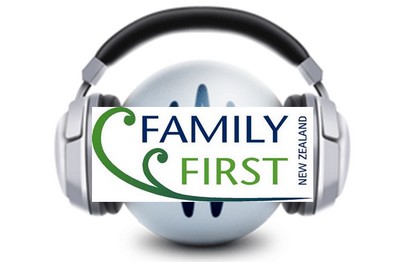Lindsay Mitchell discusses Family First’s report on Fertility

 NewstalkZB 18 November 2020
NewstalkZB 18 November 2020
New Zealand has just recorded its lowest-ever fertility rate.
The latest quarterly data from Stats NZ showed the ratio of births to the number of women of child-bearing age was now 1.63 – well below the 2.1 ratio needed to keep the population growing.
Or, below the number needed for a woman to replace herself and her partner.
What that translated to, is that without migration, the population would join others around the world that are shrinking.
In the year to September 2019, there were more than 59,000 babies born in New Zealand.
By the same time this year, there were 1300 fewer born over the year.
The downward trend was not a blip on the radar – it has been a trend over the past decade, said Kim Dunstan, a senior demographer with Stats NZ.
“They’ve shown a steady decline since about 2010, when the total fertility rate was about 2.2 births per woman.”
Dunstan said reasons were less about biology than social and economic factors.
The trend was likely influenced by the rising cost and shortage of housing, which is reflected in the data that shows the decline was greatest among those aged under 35.
“Fertility rates among older women, though, 35 to 50 years, remain relatively the same as they were a decade ago.”
Dunstan said involuntary infertility – that included men – could also be a factor.
“But generally, the trend we’re seeing in New Zealand and in other countries around the world is around voluntary choice to have children, or not, and for those having children it’s about the number they have over their lifetime.”
https://www.newstalkzb.co.nz/on-air/heather-du-plessis-allan-drive/audio/lindsay-mitchell-new-zealand-records-lowest-ever-fertility-rate/
Kerre McIvor: Who can blame people for choosing not to have children?
NewsTalk ZB 19 November 2020
The old adage when it comes to children is one for mum, one for dad and one for the country, but the fertility rate among New Zealand women had fallen to the lowest level on record 1.63 – not even one for dad.
Statistics NZ figures show the fertility rate hovered around 2 for much of this century, even getting above the 2.1 replacement level in several years. But in the past five years, figures have trended downwards.
Lindsay Mitchell spoke to Heather du Plessis-Allan last night about a report on declining birth rates she wrote for Family First and she believes women want to have children; they just don’t realise there’s a time limit on their fertility.
We need to replace our ageing population. We need people to do the jobs the elderly can’t and we need the tax base a younger working population provides. So we either grow our own people or we import them. Though it’s probably cheaper to import them.
A declining population means declining productivity and a declining economy. So it concerns all of us.
There is some evidence to indicate that women who were well educated and had good jobs were deciding to pursue a career rather than have children, but increasingly, as millennials are becoming adults, they’re taking a stance too.
And apparently its millennials who have decided that the world is too miserable a place to bring a child into. Seriously, who can blame them?
Prioritising your family isn’t valued by society. We don’t have income splitting for tax purposes. Housing unaffordability is at an all time high. Children have been told that the planet is imploding and its all the fault of humans.
Why on earth would you bring a child into the world if you didn’t believe in the future or didn’t think the job of raising a family was a valued and important job?
When times are good, when people are feeling confident, that’s generally when they will have children. If you’re fearful for the future, if you’re hunkering down, if your battening the hatches, that’s when you don’t. So what does that say about the world right now?
https://www.newstalkzb.co.nz/on-air/kerre-mcivor-mornings/audio/kerre-mcivor-who-can-blame-people-for-choosing-not-to-have-children/







